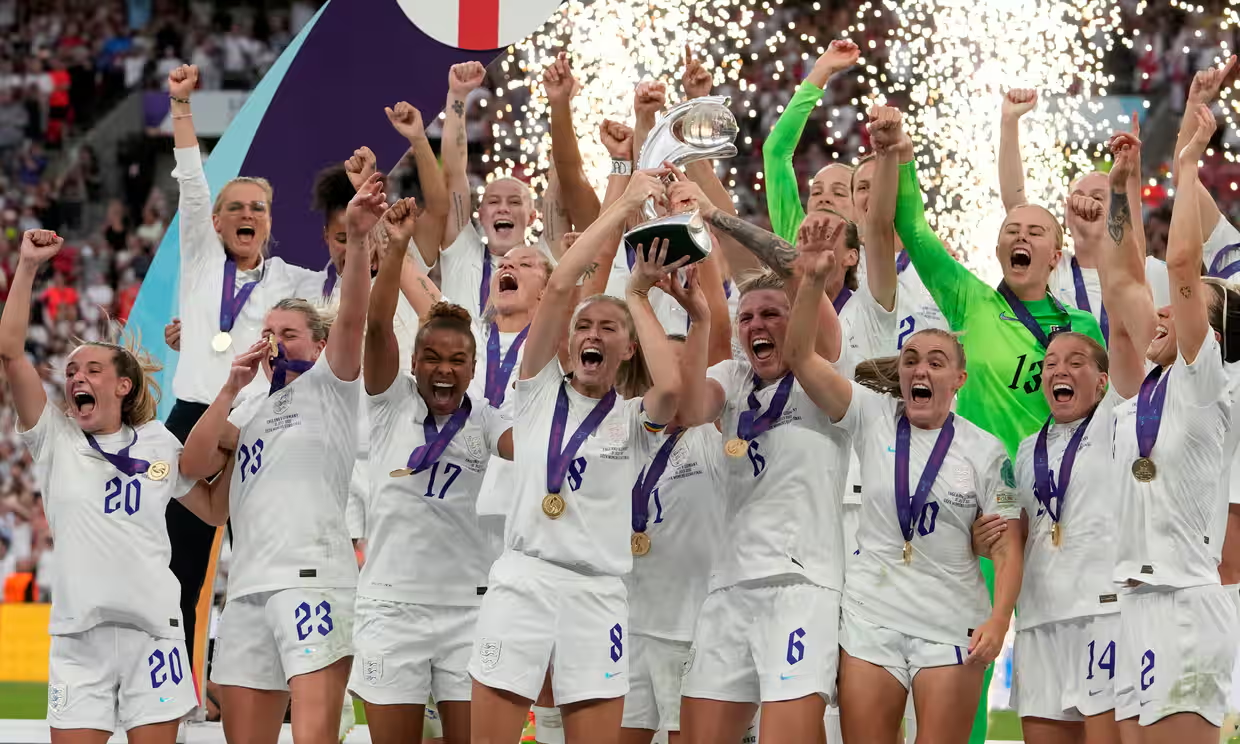The Lionesses’ Euro 2025 win sparked celebration online but just days earlier, Jess Carter faced racial abuse during the tournament. Teammate Lucy Bronze spoke out, revealing an uncomfortable truth: online support is often conditional. Praised in victory, targeted in defeat. This performative pattern must end. Abuse should never be normalised, and compassion shouldn’t depend on the score.

The Lionesses have once again cemented their place in football history, lifting the Euro 2025 trophy after a nail-biting final that ended in penalties. Social media is overflowing with joy, pride, and support, and rightly so. This team has inspired millions.
But just days before the final, the tone online was strikingly different.
England defender Jess Carter recently revealed that she had been subjected to racial abuse during the tournament. It was a sobering reminder of how easily joy turns to judgment in the online space. Her teammate Lucy Bronze responded publicly, calling out the toxic behaviour, standing by Carter, and challenging the platforms and individuals responsible.
As I scroll through my feed today, I see overwhelming positivity. Celebration for Carter, Bronze, and the entire squad. But it leaves me asking a difficult question: if the result had been different, would the narrative have shifted back to abuse?
This isn’t a hypothetical for us at Freedom2hear. Our mission has always been to confront toxicity on social media and protect the people at the heart of the conversation. What happened to Jess Carter isn’t an isolated incident. It’s part of a troubling pattern where praise and abuse exist on a pendulum, swinging based on performance, not personhood.
The Double Standard of Digital Applause
In victory, support floods in. But when outcomes don’t match expectations, criticism can quickly become personal, and too often, cruel. What Carter and Bronze spoke about last week highlights a fundamental truth: the culture of social media is still reactive, not reflective.
The same players who are lifted after a win are frequently torn down after a loss. The strength it takes to step forward and speak about abuse in the middle of a tournament cannot be overstated. And yet, their words barely made it into the wider football conversation, until the win.
That’s the problem. The abuse should never be normalised, and the compassion should never be conditional.
If This Is What Support Looks Like, Why Isn’t It Always There?
Today, the Lionesses are national heroes. But imagine the result had been different. No trophy, no penalty success. Would the same feeds be filled with admiration? Or would familiar voices have taken the opportunity to assign blame, to dissect every movement, and in some corners, to go further, into hate?
That’s the line we all must take responsibility for. Because when kindness is only offered in celebration, it’s not really kindness at all, it’s performance.
The Role We All Play: A Call from Freedom2hear
At Freedom2hear.com, we’ve spent years advocating for online spaces that honour dignity, regardless of public opinion or sporting outcome. Social media shouldn’t be a place where athletes fear engagement after a game. It should be a space where empathy and accountability remain constant, not something that flickers depending on who wins.
We don’t need more statements only when things go wrong. We need a shift in values. That starts with every user, every platform, and every comment.
Conclusion: #StandUpToKindness
The Lionesses gave us something to cheer for. But their real power lies in how they’ve shown us what strength looks like off the pitch, through their grace in the face of abuse and their courage to speak out.
If we want to honour that strength, we must change how we speak, not just in victory, but always. Let’s build a digital culture that doesn't rise and fall with the final whistle.
It's time to Stand Up to Kindness and commit to a future where decency isn't determined by the scoreboard.
Ready to see how Freedom2hear can transform your content moderation strategy? Book a free demo with one of our experts and discover how our solutions can help you create safer and more engaging online spaces.